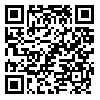BibTeX | RIS | EndNote | Medlars | ProCite | Reference Manager | RefWorks
Send citation to:
URL: http://ijme.tums.ac.ir/article-1-115-en.html
2- Tehran University of Medical Sciences, Tehran, Iran.
For some infertile couples, egg donation is the only option. In egg sharing programs, patients share half of their eggs with another couple in exchange for a discount on assisted reproductive technology. In many countries, using this method is legally discussed. Iran is the only Islamic country in which donation programs are practiced, so, we designed this study to compare egg sharing to ordinary egg donation from ethical, legal, and religious aspects.A complete review of ethical issues and debates about egg donation and sharing was done. For religious issues, we consulted clergies, Islamic texts, and current decrees (fatwas). Social issues and legal problems were examined by consulting expert opinion and jurists. Also a complete review of literature was done. Egg donation and egg sharing are both religiously accepted in Iran by the Shiite clergies as they are considered completely similar. Egg sharing has some religious (seeing and touching the female genitalia) and social (preventing repetitive donation) advantages to egg donation as well as avoiding complications of fertility drugs and procedures, financial and trading issues, advertisement and brokers. However, there are some disadvantages with egg sharing, such as reduced likelihood of conception by donating half of the eggs, challenges related to donor health, and emotional stress of failure for the donor and success for the recipient, which can be prevented by careful case selection, psychology and genetics consultation, and practicing anonymity. As a result, egg sharing is ethically and religiously more acceptable than commercial egg donation.
Accepted: 2013/09/15 | Published: 2017/09/27
| Rights and permissions | |
 |
This work is licensed under a Creative Commons Attribution-NonCommercial 4.0 International License. |





